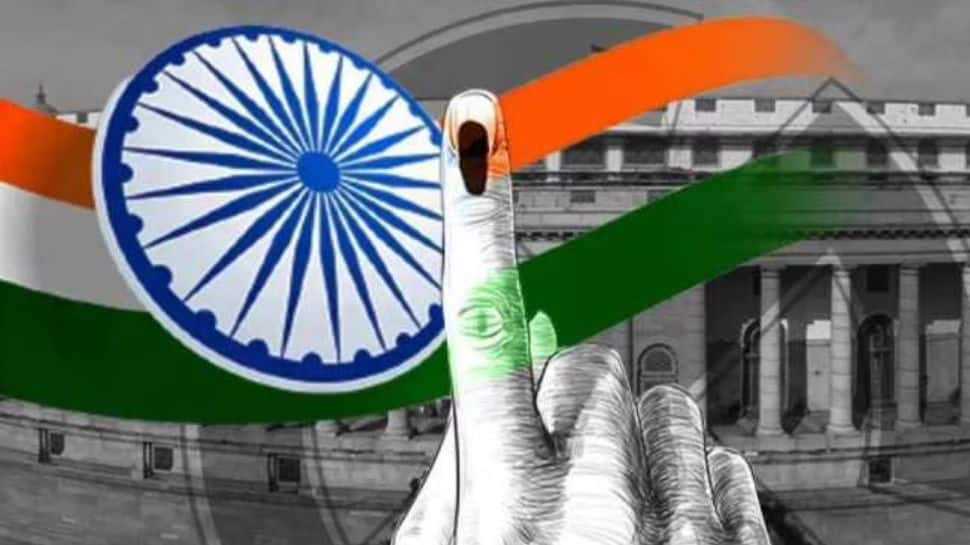 |
|
The Indian government's ambitious 'One Nation, One Election' initiative has taken a significant step forward with the introduction of two key bills in the Lok Sabha. These bills, spearheaded by Law Minister Arjun Ram Meghwal, aim to synchronize the elections for the Lok Sabha (the lower house of the Indian Parliament) and the state legislative assemblies. This long-standing proposal, a cornerstone of the Bharatiya Janata Party's (BJP) agenda, seeks to streamline the electoral process and potentially reduce costs associated with frequent, staggered elections. The first bill proposes constitutional amendments to align the terms of the Lok Sabha and state assemblies, a crucial prerequisite for simultaneous elections. The second bill focuses on amending existing laws to facilitate the conduct of simultaneous elections in Union Territories and the National Capital Territory of Delhi. This dual approach demonstrates a comprehensive strategy to address the logistical and legal challenges inherent in such a monumental undertaking.
Central to the implementation of this plan is the formation of a Joint Parliamentary Committee (JPC). This 31-member committee, comprising representatives from both the Lok Sabha and the Rajya Sabha (the upper house of Parliament), will play a crucial role in scrutinizing the proposed amendments. The committee's composition, with 21 members from the Lok Sabha and 10 from the Rajya Sabha, reflects the distribution of seats in the Parliament. The allocation of seats and the chairmanship are expected to be dominated by the BJP, given their current majority in Parliament. The JPC has been assigned a tight 90-day deadline to submit its report. This compressed timeframe underscores the government's urgency in advancing this agenda before the end of the current parliamentary session. While extensions are possible, the 90-day mark represents a critical benchmark for the committee's deliberations. The swift formation of the committee is crucial as failure to do so within 48 hours would lead to the bill lapsing and requiring reintroduction in the next session.
The JPC's work will involve a thorough and inclusive consultation process. The committee's mandate extends beyond a mere clause-by-clause review of the bills. It is tasked with engaging with a wide range of stakeholders, seeking their input on the implications of the proposed changes. This includes consultations with MPs not on the committee itself, providing a wider perspective on the views of Parliamentarians. Furthermore, the JPC will seek expert opinions from constitutional experts, former judges, and lawyers. These professionals can offer valuable insights into the legal and constitutional ramifications of the proposed amendments. The involvement of past members of the Election Commission of India (ECI) is equally significant, as their experience can illuminate the practical challenges of implementing nationwide synchronized elections. Furthermore, the committee will reach out to State Assembly Speakers to consider the practical implications for state-level electoral processes. The comprehensive nature of this consultation process highlights the government's commitment to carefully consider the potential impacts before proceeding with such a significant change to the electoral system.
The core of the 'One Nation, One Election' proposal lies in aligning the election cycles of the Lok Sabha and state assemblies. Currently, these elections are held on a staggered basis, leading to frequent electoral exercises across different parts of the country. This system presents logistical challenges, both for the Election Commission and for political parties. The proposal aims to resolve this by holding all elections concurrently. However, this would necessitate amending the term limits for certain state assemblies to ensure a synchronized schedule. This is not without its challenges. States like Andhra Pradesh, Odisha, and Sikkim are scheduled to have assembly elections concurrently with the Lok Sabha elections in 2024, while other states have different timelines. Karnataka, Madhya Pradesh, and Rajasthan held their elections in 2023, while Delhi and Bihar are scheduled for 2025, and Tamil Nadu and Bengal for 2026. The staggered nature of the current system highlights the complexity of coordinating a unified election schedule across such a diverse and geographically vast nation. The JPC’s role is critical in assessing the feasibility and potential implications of aligning these diverse electoral timelines into a single nationwide event.
The success of the 'One Nation, One Election' initiative hinges on the JPC's thorough assessment and recommendations. The committee's report will likely shape the future of the electoral landscape in India. The 90-day deadline, though ambitious, underscores the urgency with which the government seeks to progress this reform. The implications are far-reaching, touching upon various aspects of Indian democracy, including the costs of elections, the impact on governance, and the potential for increased voter turnout or fatigue. The deliberations within the JPC will therefore not only determine the fate of the current bills but will also significantly influence the trajectory of India's electoral future. The extent to which the JPC's recommendations reflect a genuinely inclusive and balanced assessment remains to be seen. The diversity of perspectives represented on the committee, and the quality of the ensuing debate, will be crucial in shaping a successful and sustainable solution that addresses the challenges and opportunities presented by this ambitious proposal.
Source: One Nation One Election Bill: All You Need To Know About 31-Members Committee, 90- Day Term
